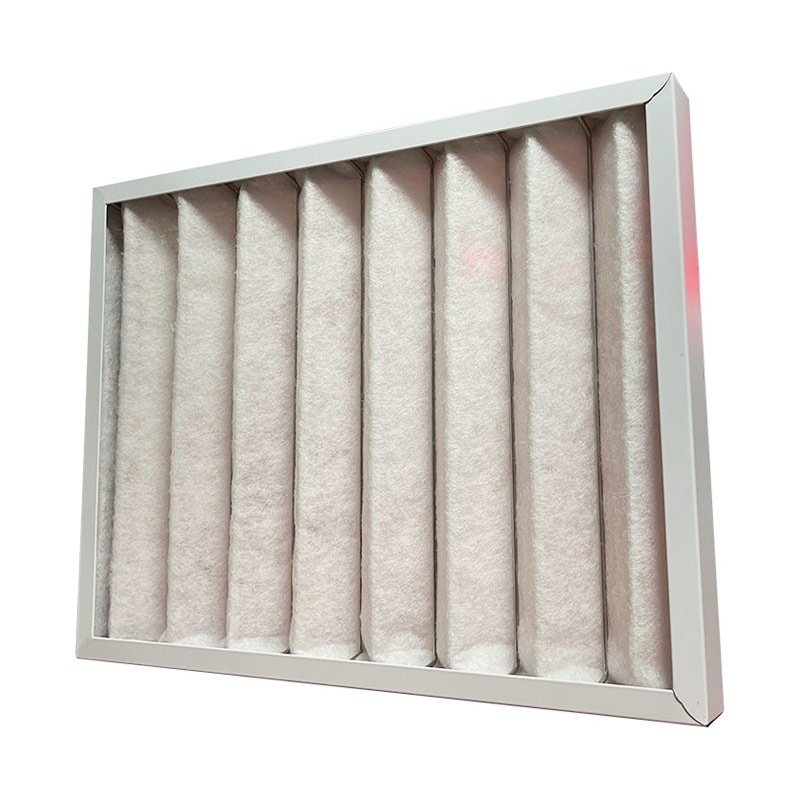In industrial environments, maintaining optimal air quality is crucial not only for the health and safety of workers but also for the longevity and efficiency of machinery and equipment. One of the key components in achieving this is the effective use of Coarse Air Filters. These filters, often the first line of defense in an air filtration system, play a significant role in capturing large particulate matter, thereby enhancing air quality and reducing wear and tear on industrial equipment. This article delves into how Coarse Air Filters function, their benefits in industrial settings, and why they are essential for maximizing efficiency.

Understanding Coarse Air Filters
Coarse air filters, also known as pre-filters, are designed to capture larger particles such as dust, pollen, fibers, and other airborne contaminants that can cause significant damage if allowed to accumulate within an industrial facility. These filters typically have a lower Minimum Efficiency Reporting Value (MERV) rating, ranging from MERV 1 to MERV 4, which means they are efficient at capturing particles sized between 10 microns and larger. While they do not capture smaller, finer particles, their role in the filtration process is critical.
The Role of Coarse Air Filters in Industrial Air Quality
In industrial environments, the air is often laden with a variety of particulate matter, much of which originates from manufacturing processes, material handling, and other operational activities. Coarse air filters serve as the primary stage in an air filtration system, designed to handle high volumes of air and remove the bulk of large particles before the air passes through finer, more specialized filters.
Capturing Large Particles:
Coarse air filters are highly effective at trapping large airborne particles, preventing them from entering the more sensitive stages of the air filtration system. This is crucial in industrial settings where particles such as metal shavings, wood chips, and other debris are prevalent. By capturing these larger contaminants, coarse filters protect downstream filters from clogging and reduce the frequency of filter replacements, thereby extending the overall lifespan of the air filtration system.Protecting Equipment and Machinery:
Industrial equipment is often sensitive to dust and particulate buildup, which can cause significant damage over time. When large particles are not effectively filtered out, they can accumulate on machinery surfaces, leading to overheating, increased friction, and wear. Coarse air filters play a vital role in preventing this buildup by capturing large particles before they reach the equipment. This not only reduces the need for frequent maintenance but also minimizes the risk of costly repairs or equipment failure.Enhancing Worker Health and Safety:
Airborne particles in industrial environments can pose serious health risks to workers, particularly those with respiratory conditions. Coarse air filters contribute to a healthier work environment by removing large, harmful particles from the air. This reduction in airborne contaminants helps to prevent respiratory issues and other health problems, ensuring that workers can perform their tasks safely and efficiently.
Benefits of Using Coarse Air Filters in Industrial Settings
The use of coarse air filters in industrial settings offers several key benefits, including:
Improved Air Quality:
By removing large particles from the air, coarse filters significantly improve overall air quality. This is especially important in industries where dust and debris are a constant concern, such as manufacturing, mining, and construction. Cleaner air not only benefits workers but also reduces the likelihood of contamination in products and processes.Reduced Energy Consumption:
Coarse air filters are designed to handle high volumes of air with minimal resistance, which means they can filter large amounts of air without significantly impacting the efficiency of the HVAC system. By reducing the load on the system, these filters help lower energy consumption and, in turn, reduce operational costs. This is particularly beneficial in large industrial facilities where energy usage is a major concern.Extended Filter Lifespan:
By capturing large particles, coarse air filters reduce the burden on finer filters downstream. This prevents the finer filters from clogging too quickly, thereby extending their lifespan and reducing the frequency of replacements. This not only saves money on filter replacements but also minimizes downtime associated with filter maintenance.Cost-Effective Filtration:
Coarse air filters are generally more affordable than finer filters, making them a cost-effective solution for pre-filtration. Their ability to extend the lifespan of more expensive filters and reduce maintenance costs further enhances their value in industrial applications.
Choosing the Right Coarse Air Filter for Your Industrial Needs
Selecting the appropriate coarse air filter for your industrial environment is crucial to maximizing efficiency and ensuring optimal air quality. Here are some factors to consider when choosing a coarse air filter:
MERV Rating:
The MERV rating of a filter indicates its efficiency in capturing particles of different sizes. For industrial applications, a MERV rating of 1 to 4 is typically sufficient for capturing large particles. However, it's important to balance the need for particle removal with the airflow requirements of your HVAC system.Filter Material:
Coarse air filters are available in a variety of materials, including fiberglass, synthetic fibers, and pleated paper. Each material has its advantages and is suited to different types of industrial environments. For instance, fiberglass filters are durable and cost-effective, while synthetic fiber filters offer higher efficiency and are resistant to moisture.Airflow Requirements:
In industrial settings, maintaining adequate airflow is essential for the proper functioning of HVAC systems and equipment. When selecting a coarse air filter, it's important to choose one that offers minimal resistance to airflow while still effectively capturing large particles.Environmental Conditions:
The specific conditions of your industrial environment, such as temperature, humidity, and the presence ofcorrosive substances, should also be considered when choosing a coarse air filter. Some filters are designed to withstand extreme conditions, making them more suitable for certain industries.
Conclusion
Coarse air filters play an indispensable role in enhancing industrial air quality by effectively capturing large particulate matter, protecting equipment, and improving worker health and safety. Their ability to reduce maintenance costs, extend filter lifespans, and lower energy consumption makes them a vital component in any Industrial Air Filtration System. By selecting the right coarse air filter for your specific needs, you can ensure that your industrial environment remains clean, efficient, and safe for both equipment and personnel.





